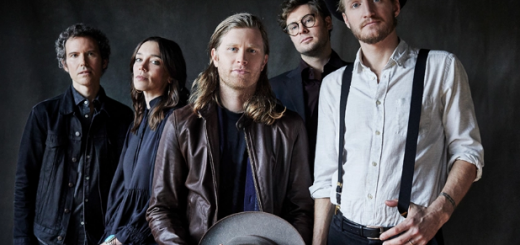Morning Song by The Lumineers Lyrics Meaning – Unveiling the Soulful Echoes of Lost Love
Lyrics
The bubbles rise while my heart sinks
And I’ll I tend to do is think of you
Was it easier to pack your bags
And book that flight to Paris as
The plane began to move that afternoon?
And when all the trains have pulled away
From local stations in decay
It’s I who waits, it’s you who’s late again
And did you think of me when you made love
To him? Was it the same as us
Or was it different? It must have been
And all the pretty dames
They’ll hug and kiss you all the same
And when they go, they’re gone
They’re not running late
Oh all, all the pretty dames
And the kids that you hold in your arms
With promises to protect them from harm
But they grow and they go
And you’re all alone
All the kids, all the kids that you hold
And it’s a shame that it ends this way
With nothing left to say
So just sit on your hands, while I walk away
It’s a shame, it’s a shame, it’s a shame
When my hands begin to shake
When bitterness is all I taste
And my car won’t stop
‘Cause I cut the brakes
I hold on to a hope in my fate
Oh-oh, ah-ah, hey-hey
May you return to love one day
Well I hope and I pray
That you get what you gave
Oh-oh, ah-ah hey-hey
In the rich tapestry of modern folk music, The Lumineers stand out with their soul-stirring narratives that gracefully skirt the edges of our deepest emotions. One such narrative is woven within the lyrics of ‘Morning Song,’ a masterful blend of melody and melancholy, threading together themes of love, loss, and the bittersweet taste of memory.
The song, stripped to its core, is a poignant reflection on the passage of relationships and the immutable march of time. The music dances with a haunting simplicity, leaving listeners enveloped in the raw honesty of the lyricism. As we peel back the layers of ‘Morning Song,’ let us dive into the unspoken words between the lines and the resonant truths that echo long after the final chord fades.
The Sparkling Sorrow of Carbonation
There is an arresting juxtaposition in the opening lines of ‘Morning Song.’ The carbonated drink, a symbol of celebration and effervescence, stands in stark contrast to the sinking heart of the narrator. This metaphor lays the foundation for a track that delves into the agony of remembrance, where even the most mundane aspects of life are tinged with the residue of a love lost.
The bubbles that rise do so in defiance of the gravitational pull that afflicts the singer’s spirit, suggesting an emotional discordance. The heart, overburdened with thought, anchors itself to the past while life’s moments – as simple as a rising bubble – seem to move onward, untethered from sorrow.
Escaping on a Jet Plane – Reflection or Flight?
The notion of departure rears its aching head in the questions posed about packing bags and fleeing to Paris. Perhaps it’s a metaphorical query, a rumination on the ease with which one can physically remove themselves from the locus of their emotional turmoil. Or perhaps it’s a literal inquiry, the narrator grappling with the reality of their beloved’s physical absence.
The haunting question about the nature of new love juxtaposed to the old – ‘Was it the same as us, or was it different?’ – unveils a vulnerability, a fear of obsolescence, and the universal dread that we may be replaced or, even worse, forgotten.
Train Stations and Time – The Inevitable Goodbye
With the imagery of desolate train stations, ‘Morning Song’ plants itself firmly in a landscape of endings. The trains have pulled away, symbols of opportunities and paths taken without looking back. It is in this evocative setting that the narrator stands waiting, caught between moving on and the paralysis of continued longing.
Therein lies the crux of the emotional journey – the narrator’s fixation on lateness, both literal and metaphorical. It speaks to the desynchronization of life’s timelines between the departed and the one left behind. The inexorable drift apart is laid bare, the stations ‘in decay’ underscoring the erosion of what once was.
Of Dames and Kids – The Ephemeral Nature of Attachment
The cyclical nature of attention and affection is eloquently captured in the verse touching upon ‘all the pretty dames.’ The transient kisses are emblematic of fleeting connections in a world where even the intimacy of love can feel hollow, reinforcing the narrator’s profound sense of isolation.
This motif is further explored with ‘the kids that you hold in your arms,’ a representation of promises made, futures envisioned, but ultimately, the solo journey each must undertake. The imagery suggests a universal narrative of growth and the acceptance that in the grand scheme, we are each alone, custodians of our own destinies.
‘It’s a Shame’ – The Resonance of Regret and Resilience
The repeated refrain ‘it’s a shame’ is a powerful mantra that encapsulates the crux of ‘Morning Song’ – the lamentations of a heart that has no more words left to convey its anguish. The shaking hands and the taste of bitterness convey a visceral, almost palpable heartbreak.
Yet, nestled within this resignation lies a thread of defiance: the sabotaged car that won’t stop is perhaps a metaphor for the narrator’s own journey – no brakes, no looking back, despite the jagged terrain of despondency. And in the hope and prayer for the other’s return to love, there’s a glimmer of resilience, a final blessing changing the narrative from one of despair to a whispered benediction for closure and new beginnings.








